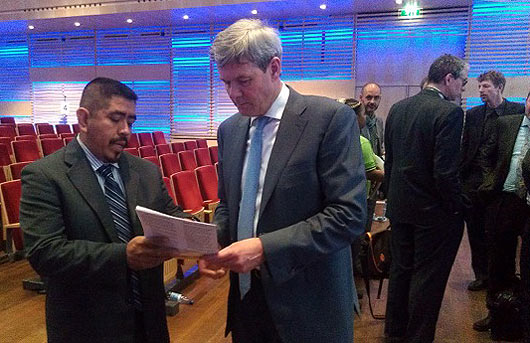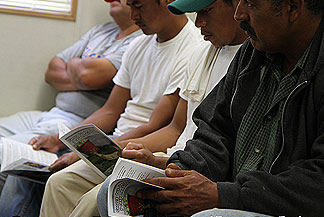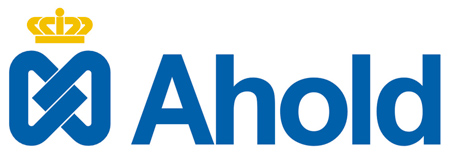
Another year, another exercise in hypocrisy at the Ahold shareholder meeting in Amsterdam
Let’s cut right to the chase: The field of corporate social responsibility is characterized, for the most part, by attention to the appearance of accountability over the substance — to the facade of reassuring words and admirable standards over the hard work of real-life enforcement. Ahold’s stated approach to social responsibility falls squarely within this dismal tradition.
Of course, Ahold — the Dutch grocery giant that owns US brands Giant, Stop & Shop,Martins, and Peapod — is fluent in the peculiar patois of social responsibility. Here’s an example, from a 2013 report:
Being a responsible retailer underpins our vision, values and strategy to create and accelerate growth, and deliver value to our customers…” read more, if you care to, here
But whatever those words might actually mean in English, in practice they most definitely don’t mean that Ahold is willing to meet the highest standards of monitoring and enforcement in the industry today, because Ahold, like Publix and Kroger, refuses to join the Fair Food Program.
 As the Fair Food Program (FFP) wraps up its second full season of operation in the Florida tomato industry, it is becoming increasingly clear that the FFP is the leading model for social responsibility in the US produce industry today. The carefully constructed program — combining worker-to-worker education (right), a 24-hour complaint line, a complaint investigation and resolution process without equal in agriculture, and regular field and farm office audits, all backed by strict market consequences built into the CIW’s Fair Food agreements with participating buyers — is drawing the attention of human rights observers from the White House to the United Nations, and putting the lie to many age-old myths about what constitutes a satisfactory approach to corporate social responsibility.
As the Fair Food Program (FFP) wraps up its second full season of operation in the Florida tomato industry, it is becoming increasingly clear that the FFP is the leading model for social responsibility in the US produce industry today. The carefully constructed program — combining worker-to-worker education (right), a 24-hour complaint line, a complaint investigation and resolution process without equal in agriculture, and regular field and farm office audits, all backed by strict market consequences built into the CIW’s Fair Food agreements with participating buyers — is drawing the attention of human rights observers from the White House to the United Nations, and putting the lie to many age-old myths about what constitutes a satisfactory approach to corporate social responsibility.
Yet Ahold, at its annual shareholders’ meeting in Amsterdam last week, stubbornly held the line on the old school, form over substance model of corporate accountability. Once again, Ahold refused to participate in the the Fair Food Program and instead doubled down on the myths of corporate-led social responsibility that are losing credibility like a hot air balloon that has sprung a leak and is sinking back to earth.
And like that balloon, the only question left to answer now for Ahold is how hard the landing is going to be.
The 3 founding myths of corporate-led social responsibility
The one value to Ahold’s dogged resistance to progress is that it prompted the company to issue a statement in response to the Campaign for Fair Food that reads like a laboratory specimen of the corporate-led social responsibility model. And so, as a public service, over the coming days we will dissect the Ahold statement in a series of posts designed, step-by-step, to strip away the public relations veneer and expose the three founding myths that underlie the corporate model. We’ll conclude the series with the statement that the CIW’s Lucas Benitez was prevented from delivering in full at the shareholders’ meeting, and with the questions that Lucas was unable to ask of Ahold’s board and CEO. Maybe, just maybe, Ahold’s executives will have the courage to face and answer those questions, given a second chance.
We begin with today’s post, bringing you Ahold’s statement in its entirety, followed by an enumeration of the three myths. In the days that follow, we will examine each of those, one by one. Here below is the statement issued by Ahold ahead of last week’s shareholders’ meeting:
STATEMENT ON THE COALITION OF IMMOKALEE WORKERS (CIW)
11 April 2013Ahold USA is committed to offering our customers products that are produced under fair, safe and sound circumstances.
We carefully select and monitor our suppliers and require them to adhere to our Standards of Engagement, which require our suppliers to treat all employees fairly with dignity and respect, and in accordance with all applicable laws and regulations. We expect our suppliers to pay employees for all time worked and to pay wages that meet or exceed legal minimum requirements.
In response to concerns of the Coalition of Immokalee Workers (CIW) about worker treatment, Ahold USA and its affiliates:
- Met with the CIW and other interested groups;
- Suspended purchasing tomatoes from the Immokalee region in 2010;
- Met with our suppliers located in the Immokalee region and resumed purchasing tomatoes only after they demonstrated their commitment to comply with our Standards of Engagement;
- Met with certain tomato suppliers again in 2011 and 2013 to monitor and reconfirm their commitment to comply with our Standards of Engagement.
All of our tomato suppliers clearly understand that all business relationships with Ahold USA and its affiliates are contingent on conduct that meets or exceeds our Standards of Engagement. They demonstrated extensive knowledge of our standards and fully understood their requirements, and the requirements of their subcontractors, to comply with them. Each of our tomato suppliers is committed to upholding our Standards of Engagement.
The CIW has asked Ahold USA to agree to pay a penny-per-pound to tomato workers under the CIW program. We will continue to pay a fair market price for tomatoes from suppliers who are in compliance with our Standards of Engagement, but Ahold USA will not enter into direct wage negotiations with suppliers’ employees. Ahold USA will not, therefore, participate directly with the suppliers’ employees in CIW’s penny-a-pound program.
The tomato suppliers we are associated with in the Immokalee region are members of the Florida Tomato Growers Exchange and have adopted the CIW Fair Food Code of Conduct. The CIW Code and our Standards of Engagement are aligned in seeking the betterment of working conditions for the tomato workers. As in the past, we ask that CIW immediately share with Ahold USA any information they receive concerning the mistreatment of workers by any of our suppliers. We have not received from CIW any instances of mistreatment since our suppliers adopted the Fair Food Code of Conduct. We commit to investigate any report thoroughly and promptly and to take appropriate action, if warranted. We welcome all concerned parties to collaborate to stamp out worker mistreatment once and for all.
Ahold USA will continue to be a responsible retailer and engaged member of our community. We practice this in a variety of ways from working with reputable suppliers to giving back to the communities we serve.
That’s a hard act to follow, but follow it we will. And so, without further ado, we present the Three Founding Myths of Corporate Social Responsibility, in order of their appearance in the Ahold statement:
- Standards, without resources or mechanisms sufficient to enforce those standards, are adequate to respect and protect of human rights in the supply chain;
- The market price is, by definition, a fair price;
- Corporations can be trusted to unilaterally investigate, and to determine any appropriate corrective action, when their suppliers violate their workers’ human rights.
So there you have it, the lines are drawn, the great debate set to begin.
At this podium, Ahold stands four-square in defense of the the corporate-led, 20th century vision of social responsibility.
And at the other, the CIW steps to the microphone, ready to argue the case for the Fair Food Program, the worker-led, functioning, 21st century approach to corporate accountability.
Check back soon as the debate is engaged…

